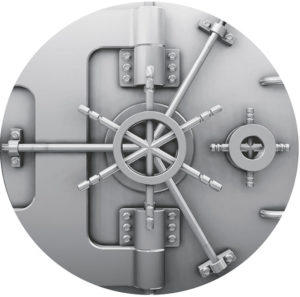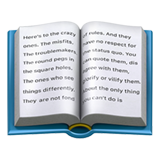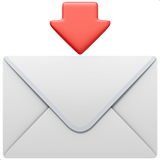We’ve all been there. You’re 5 hours deep into a day of lectures. Your orbicularis occulii have never worked so hard to keep your eyelids from closing. Your lecturer seems blissfully unaware that they’re perfectly reciting word-for-word the text heavy slides they’ve bestown in front of you. Its hard to concentrate and you just want to leave.
Wouldn’t it be great if you got into the habit of making the most out of your lectures?
I often saw five types of students in lectures:
- The techies – those that listen to the lecturer, take notes on a laptop and organise them later
- The non-techies– those who use note pads and highlighters and organise them later
- The chillers – those who sit back and soak it all up and then make notes later.
- The question bankers
- The online shoppers
I used a different way.
Leveraging your time is key to enhancing academic performance whilst resisting burnout. Having been to uni for 7 years, I’ve sat through too many hours of lectures to count. On the plus side, I found a technique that I could use to unlock more time during every lecture, which meant that I was comfortable with studying less after lectures. The techniques I used allow me to practice active recall, spaced repetition and content linkage during lectures. I’ll explain how in this blog.
🥜Article in a nutshell
- Prerequisites and caveats
- How to spot examinable content
- Using technology to collate information
- How to unlock more time in lecture
- Creating mini revision sessions
- Alternatives methods for different types of learners
In case you didn’t know, this blog is a part of my Study Hacks series – my top tips on HOW to study at medical school to study smarter and unlock your time.
As MedEd is turning more and more digital, there are probably plenty of online resources you didn’t know about – I’ve collated all my top recommendations on WHAT to study in the MedEd Vault. Sign up below to access!
📩 Discover the internet’s best medical school resources.
Every week, I share study hacks and recommended MedEd resources to help you study medicine smarter not harder.
Forecast: 100% chance of inspo, 0% chance of spam.
⚠️The Prerequisites & Caveats
The prerequities:
Here’s what you’ll need to do to make the most of the techniques I used:
- You’ll need to try your best to be engaged – this’ll be easier if it’s content you enjoy or a lecturer you love, but otherwise you may find an espresso does the job better.
- You’re going to get so much more use out of your time if you’re working off a laptop or tablet rather than paper notes. See more on technology later.
- You have to resist the urge to sit back and take it all in (unless you really have to), your time is much better spent now, than trying to vaguely recall learning points later.
Caveats:
It sort of goes without saying (but im going to say it anyway); these techniques aren’t appropriate for every lecture. It depends how you learn too (Ive got some tips later on for those who are not predominately visual learners). Regardless, its a good idea to be open to other techniques that you haven’t practised before – they might help you out more than your current technique. These techniques may not be appropriate under the following conditions:
- You’re being involved in a highly interactive seminars or case based discussion
- You’ve got a TED talk-style engaging professor who isn’t using anything but pictures
- The concepts are particularly challenging and you’re trying to figure out what it all means
- The times where you really can’t concentrate and opt for hibernation instead
🔍Be on the lookout for examinable content
Always be on the lookout for examinable content. I found that I developed a fairly good radar for content that was examinable and worth paying extra attention to. Here are my tips on what you could consider:
- What are the learning objects – Be cognisant of the leaning objectives. They’re practically telling you what you need to be aware of.
- Who’s delivering it? – Know your lecturers, if its a content lead for a particular module and you know they set the questions, be more vigorous on the notes you take. If its a random honorary lecturer, you may be less inclined.
- Is the content listy? – Theres so much content in medical education. We love lists. If the contents is listed, it may be worth taking the time to remember it.
- Have you seen it elsewhere before? – the chances are if you’ve seen it a lot of different earning sources then its considered common medical education knowledge. If its super niche, you may want to be more selective.
- Are they quoting specific guidelines? – Bingo, they’re pretty much telling you to check them out and know the guidelines.
More often than not, I found that the following types of content to be note-worthy:
- Differentials diagnoses
- Risk factors
- Scoring systems
- Diagnostic criteria
- Molecular pathways
- Pharmacological mechanism of actions of drugs
- Management guidelines
👨💻Use technology to collate information
The recurring theme amoung these study hacks is about using your time wisely. I want to stress here the importance of using technology to your advantage. In this context, Im advising you (as many many students already do) to use a laptop or tablet over paper notes. It’s easier to store information, you can access all your lectures easily, you can jump from one to the other in a click of a button and you can add notes whenever, wherever. Leveraging technology will allow you to find and organise way more effeicntly than papers notes ever can.
In my opinion, you MUST have access to a note taking application. Consider any of these:
- Microsoft OneNote – This was my app of choice. I could import all my powerpoint slides easily and add notes, images and links anywhere at a click of a button. It’s particularly easy to access if your university offers a Microsoft Office account with your institutional email address.
- Notion – I’m a huge fan of notion. I only started using it for more day-to-day post-medical school stuff and I probably would have used it over OneNote if I had known about it before. Its free to access from www.notion.so. Check out these YouTube videos from Kharma medic and Ali Abdaal on using notion at medical school.
 Notion – One workspace. Every team.We’re more than a doc. Or a table. Customize Notion to work the way you do.www.notion.so
Notion – One workspace. Every team.We’re more than a doc. Or a table. Customize Notion to work the way you do.www.notion.so
- Evernote – Cant say Ive ever used this, but Ive heard through the grapevine that its useful alternative.
✍️A note on note-taking
Here’s how I took notes:
- Make them short and sharp – The Feynman method – If you can’t explain it succinctly, then you probably don’t know the content very well.
- Outline definitions and points of clarification straight on the slides that may confuse you later
- List mnemonics wherever you can
- Refrain from adding notes on anything that is already said in the slide, unless you’re trying to actively recall it without looking.
- Add in external website links and copy and paste pictures from the internet directly next to your slides
N.B. Its more than likely you’ll be teaching others in some capacity in the future – I wanted to take a moment to advocate the movement of not reading off of powerpoint slides if you’re presenting 💪 together we may rid the world of death by powerpoint.
⏱️How to unlock more time in lectures:
My advice is to try to make as much time as possible, and then use the glorious internet to build upon that knowledge DURING lectures. In effect, you’re then prepping all your notes and getting all the information you need – when it comes to revising, you’ll have everything you need already ready to go. My top tips:
- Organise your notes there and then, not later – keep your lecture notes categorised by module, add in supplementary information and website links to your notes so you don’t have to waste any time going over it at home at a later time. In this way, any time you access your notes, you’ll be able to crack on with revising and committing to memory, rather than wasting time organising.
- Skip ahead – Id always try to beat the lecturer by about two or three slides. Id read the notes and try to make sense of what was going on. If it was fairly self explanatory Id know that I had some time on my hands. Otherwise Id listen out for the lecturer to expand on those areas. I’d take notes for clarification, so I knew I wouldn’t be second guessing the bits I was unsure of when id come back over them. The key here is to maintain vigilance – try keeping an ear open to see if the lecturer introduces key learning points which aren’t on the slides and write them down. Otherwise, use your time effectively as explained below.
🤙How to make the most of your lectures:
Once you’ve freed up time by (i) only taking notes on the key clarification points and (ii) trying to skip ahead to identify the parts you’ll need to listen out for, you’ve freed yourself up to either build on your notes, or revise content simultaneously. Heres what I did:
- Test yourself on key learning points as and when you come across them – when you’ve spotted examinable content, try to recall the content by writing new notes next to the slides. Don’t look at the slides. For example, if you come across the diagnostic criteria for Polycystic Ovarian Syndrome, try to recall the in the notes. In this way you’ll be actively recalling information and writing it down. Go back to the content, did you recall it all? If not, do it again. If you did, try to recall it again later in the lecture. This technique is great for lists – which there are lots of in medicine – we love lists.
- Recall similar content from other lectures – If you use the technique above you’ll find it easier to recall content over time. If your new lectures cover content that reminds you of similar key learning points from previous lectures, try recalling them again. This allows you to practice active recall once more. But what’s even better is that it introduces spaced repetition – a major skill in memorisation methods. Write this content you’re recalling in your new lecture notes. When you end up going through your lectures in the future you’ll find that you commonly revisit similar content. For example, if I came across the ChA2DS2-VASc score for stroke risk in patient with atrial fibrillation, every time I’d come across AF-related content in my lectures, Id try to recall the score.
- Insert supplementary material from other websites – When you’ve freed yourself up, you should take the time to find some pictures on google, or external websites for extra information to add to your notes. Keep an ear out for the lecturer so you know when to come back to the slides, but otherwise, import relevant materials into your notes and have them all in one place.
✌️Methods for other types of learners:
Different students learn in different ways. As a predominately visual learner, these techniques helped me to organise my notes in a manner I found easy to extract key learning points from. You may also want to consider developing your notes into flash cards – I didn’t use this way through uni but its a popular strategy.
I also like locking in information by typing notes down. For those who prefer highlighting and brainstorming, you can try directly annotating your slides on a tablet to help you commit content to memory instead. If you’re more of an auditory listener, applications like OneNote will allow you to record lectures which you could play back on double speed at a later time. Alternatively you can use your smart phones microphone recorder applications. If you’re a kinaesthetic learner, you can touch and feel your powerpoint slides, or whatever it is you do.
🙌Conclusion
If you follow my methods, you’ll use your lectures for mini revision sessions. You’ll be making a conscious effort to make accessory notes on the subject you’re covering, beyond what the lecture notes are telling you. You’ll also be purposefully trying to identify and recall examinable content and enhancing the number of times you’re trying to commit it to memory in three ways:
- Spaced repetition
- Active recall
- Learning in layers
Over time, these mini revision sessions will compound, making it easier to remember your notes for exam purposes.
There you go – you’ve made the most of your time in lectures. You’ve organised your notes in the lecture itself and squeezed in mini revision sessions. That’s time leverage!
I hope this helps!




